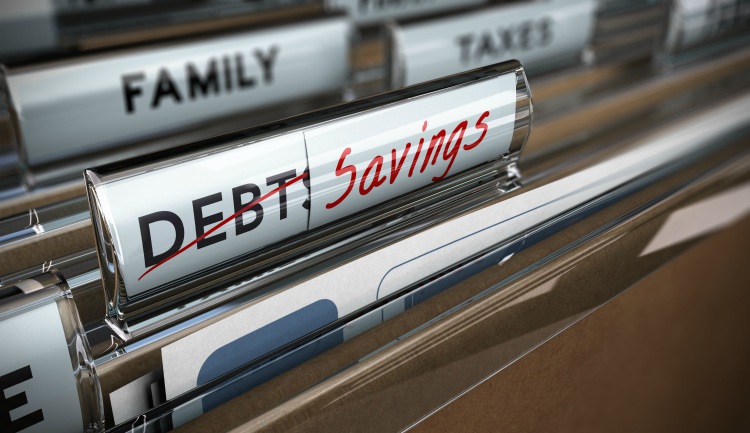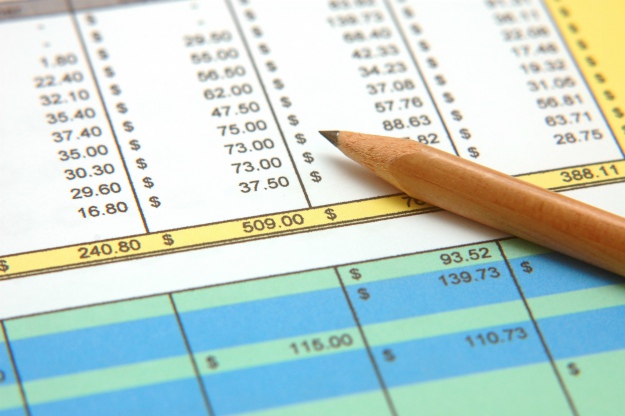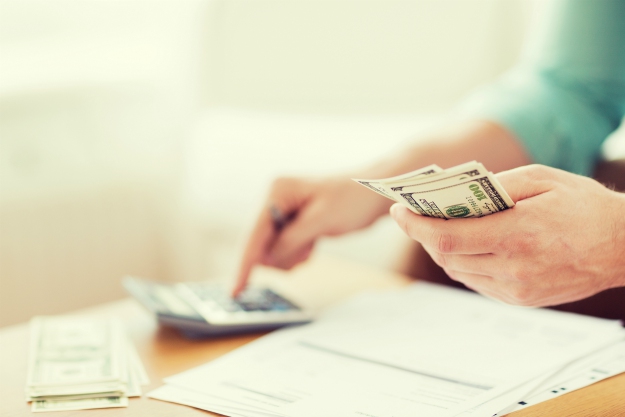Getting out of debt can give one of the most rewarding feelings of accomplishment.
There’s a reason that people in debt say they feel like they have a weight around their neck: it’s because you feel it everywhere you go.
Higher debt levels impact your ability to invest, save for your future, and enjoy your money.
Figuring out a Plan to Start Getting out of Debt
At some point in the past you needed more income than you had, so you went into debt to meet your needs.
Repaying debt typically requires you to do without in some area today in order to repay your obligations created in the past.
In this article we’ll cover how you can begin getting out of debt with three steps:
- Track what you owe
- Increase your income
- Repayment Hacks
Good debt vs. bad debt
Before we get into the bulk of the article, it’s worthwhile reviewing that debt should only be used as an investment to produce future income.
In other words, don’t go into debt on your credit card for vacation.
However, going into debt to buy a course that will help you get a better job could be a worthwhile expense.
I like the take on debt in Robert Kiyosaki’s book, Rich Dad Poor Dad, where he explains that there are two types of debt: good debt and bad debt. Bad debt is debt that makes you poorer, such as credit card debt, car loans, etc.. This is the type of debt used to buy liabilities.
Good debt is debt that makes you richer. This could be anything from a loan for investment property to a loan to purchase equipment for your business that will make you a return. This is the type of debt that is used to buy assets.
I find that when in the position to take on debt, I should ask myself if this is a good debt or a bad debt. This helps keep me clear on whether that debt is worthwhile.
This is really valuable in today’s world of instant gratification and free credit offers.
Now that you know how to stay out of debt moving forward, let’s jump into how to repay current debt that you may have:
Track what you owe
Have you ever seen how a boxer trains? One of the first things they do daily is weigh themselves. They want to know up front if their weight is where it needs to be in order for them to compete. If their weight is fine, then they have the validation that they’re on track. But if it’s not, they’re clear on how much they are over and how long they’ll be running for.
When paying back student loan, credit card or personal debts, you’ll need to track what you owe.
This means having a clear understanding of the company that owns the debt, the repayment terms (payment frequency, interest rates, penalties, due dates, etc.), and total amount outstanding.
While this seems like a simple step, I’ve found that many people don’t have this information, which causes them to feel out of control with their debt.
How to do it:
Start by putting all of this information into an excel spreadsheet. It doesn’t have to be overly complicated, something simple will do.
Once you’ve made a list of all your debts, you’ll want to track the due date for each payment.
Most companies will allow you to make a payment around your schedule, so you can coordinate payments according to your paychecks.
To do this, all you have to do is call the company who owns the debt and set the due date according to your schedule.
This can help you have better control of your cash flow, which will empower you. You’ll also have less of a chance of paying penalties or late fees.
Now, with all of your data gathered, you have to take action.
You should plug in automatic payments into your checking account so that the debt payments are taken from your account on the dates you have set. Be sure that you’re realistic with your bills and other obligations when you set this up.
For instance, you probably don’t want all of your debt payments to be withdrawn during the same time you’re paying rent or your mortgage.
Spread the debt payments out to best manage your cash flow.
Increase your income
While a lot of financial advisers like to tell you ways to save money and cut down expenses, I think that there’s only so much you can cut.
It already sucks having to take money that could be going to XYZ and using it for something your past self enjoyed.
Rather than cutting expenses, I want to share a few ways you can increase your income.
As a goal, your target should be to increase your income by whatever your monthly debt payments are.
For instance if your credit card, student loan and auto loans total $750 per month, then you’ll want to figure out how to increase your income by at least this amount.
The purpose of doing so is twofold: 1) It will allow you to accelerate how fast you pay down your debt 2) This increased cash flow can be invested once your debt is repaid.
How to do it:
Of course, you could increase your income by taking on a second job.
However, before you do, consider these things as a means to increase your income:
- Sell old phones, clothes, electronics on Facebook Marketplace, Craigslist or Letgo
- Do freelance gigs on Fiverr (this is super easy to do and anyone can generate $50/day)
- Provide consulting services on Upwork (use your existing skills to help others or build a new skillset by helping others)
- Work as a ghostwriter on Iwriter
Each of these options allows you flexibility to work on your terms and have unlimited control over how much you earn. Start with a simple goal of earning an extra $20 per day. As you get better, you should be able to make $100 per day in passive income.
This money can be dedicated solely to your debt.
Once you make over $600, consider starting an LLC for your business so that you can write off expenses involved with your work.
Repayment Hacks
Repaying your debt will take time, but here are a few ways to speed things up:
Automatic payments
As mentioned above, setting up automatic payments can positively impact your control over your debt and cashflow.
However, some companies will also give you a break on your interest rate if you set up automatic payments with them.
Navient is one such company that offers a 0.25% lower interest rate if your payments are scheduled for automatic withdrawals from your account.
Bi-weekly payments
Paying your monthly payment on a bi-weekly basis will reduce the amount of interest that accrues over the time period.
Essentially, what you are doing when making two payments per month is paying an extra payment each year.
This helps reduce your principal faster.
Use this calculator to see how bi-weekly payments can help you finish getting out of debt.
Balance transfers
A balance transfer gives you the ability to pay an introductory rate of typically 0% for a defined period, usually 12 months when you open a new credit card.
There is usually a transfer fee of 1 – 2% of the amount transferred.
But by using a balance transfer wisely, you can reduce the rate interest accrues on outstanding debt. This ensures that more of your money goes to paying down the principal and additional interest doesn’t accrue.
This in turn allows you to get one step closer to getting out of debt.
A word to the wise: once you have made a balance transfer, put the card that the balance originally was on away in a separate drawer.
You’ll need to physically restrain yourself from spending that newly available credit. In order to do so, I recommend putting the card in a safe place that won’t be used until the transferred balance is paid off.
You’ll Get There
As you can see, getting out of debt will require some work and dedication.
However, with the tools laid out for you here, it is very doable.
When you follow the steps above, you’ll put yourself in a position that could help pay off your debt faster and build healthy financial habits for your well being.
What tips have you used to start getting out of debt? Any that you would avoid? Let us know in the comments below!



